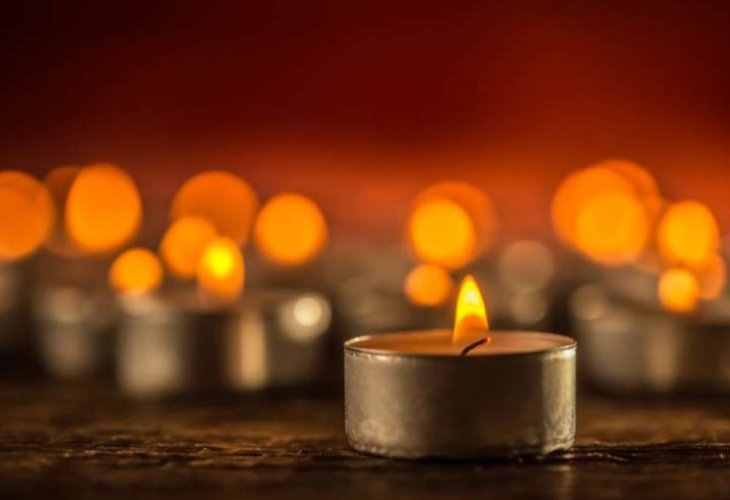Torah Personalities
Rabbi Yehuda Tzadkah: A Humble Giant of Sephardic Torah Leadership
On his 33rd yahrzeit, thousands remember the quiet strength and enduring legacy of the revered Rosh Yeshiva of Porat Yosef
 (Photo: shutterstock)
(Photo: shutterstock)A Leader of Generations
This evening (Wednesday, the 12th of Cheshvan) marks the 33rd yahrzeit of Rabbi Yehuda Tzadkah, the late Rosh Yeshiva of the Porat Yosef Yeshiva. As in years past, multitudes are expected to visit his gravesite at the Sanhedria Cemetery near the Maran intersection in Jerusalem.
Rabbi Yehuda Yehoshua Tzadkah (1910-1991) served as Rosh Yeshiva of the prestigious Porat Yosef Yeshiva alongside Rabbi Ben Zion Abba Shaul. A deeply influential Sephardic rabbinic figure, he was among the founders of the Maayan HaChinuch HaTorani educational network and was a driving force in restoring Sephardic Torah pride and tradition.
His students include towering Torah scholars: Rabbi Ben Zion Abba Shaul (his colleague in leading the yeshiva), his nephew Rabbi Mordechai Eliyahu (former Sephardic Chief Rabbi), Rabbi Ovadia Yosef (former Sephardic Chief Rabbi), and Rabbi Yehuda Moallem, rabbinic figures who left a profound mark on the Torah world.
Stories of Sacrifice and Quiet Heroism
Rabbi Yehuda Tzadkah taught thousands of students and was revered both for his mastery of the revealed and hidden Torah. Personally, he was modest and humble, yet fiercely committed to the sanctity of Torah and the honor of Heaven. His heartfelt prayer was legendary. He devoted himself to protecting immigrant children from secular or heretical educational systems.
One well-known story tells of a young boy living in a Jerusalem neighborhood where the only available school was a school under the auspices of the Conservative movement. Upon learning this, Rabbi Yehuda sprang into action.
After an attempt to have the boy accepted into a different school was refused, Rabbi Yehuda personally went to the child’s home the next morning. He lifted the boy into his arms and traveled with him to the other school. The principal, spotting Rabbi Yehuda through his window, was overwhelmed with reverence and fled, unable to face the encounter.
Undeterred, Rabbi Yehuda entered the school, found a suitable classroom, and presented the boy to the stunned teacher: “This is my son. If there are, Heaven forbid, any issues, come to me.” He then found the boy a comfortable seat near a window and left quietly.
Another story tells of the principal of a prominent Talmud Torah who wished to resign due to the workload and his wife's urging. Rabbi Tzadkah, deeply concerned about the future of the school, took the unusual step of speaking directly with the man's wife. In a brief conversation, he persuaded her to allow her husband to continue.
She returned home shaken. Her husband asked what Rabbi Yehuda had told her to change her mind so swiftly. She replied: “He said these words: ‘In just a few days, I will leave this world. I promise you that if you allow your husband to continue leading the Talmud Torah, where Jewish children are raised in Torah and fear of Heaven, I will advocate on your behalf in the World Above.’”
The principal was deeply moved. A few days later, in the early hours of Sunday, 12 Cheshvan 5752, Rabbi Yehuda passed away.
Teachings from Kol Yehuda
Rabbi Yehuda Tzadkah authored Kol Yehuda, a collection of sermons on the weekly Torah portions, Talmudic insights, and essays. In his writings, he emphasized the greatness of teachers of young children:
“‘Those who bring merit to the multitudes will shine like the stars forever’—these are the teachers of young children. Though society may view them as holding lowly positions, in truth they are extraordinarily elevated. As Rabbi Yehuda HaNasi said of Rabbi Chiya, ‘Great are the deeds of Chiya,’ for teaching Torah to the children of Israel is the greatest merit one can have. Just as stars appear small, yet are in fact massive worlds, so too are these teachers.” (Kol Yehuda, Sha’ar HaAggadah, p. 274)
He also wrote about the importance of the land of Israel, specifically when Torah is studied and observed there:
“The face of Moshe was like the sun, and the face of Yehoshua was like the moon. The sun emits its own light, while the moon merely reflects it. Moshe gave us the Torah, and Yehoshua gave us the Land of Israel. Our sages alluded: Just as the moon is nothing without the light of the sun, so too, the Land of Israel, bestowed by Yehoshua, is meaningless without Torah.” (Kol Yehuda, Sha’ar HaAggadah, pp. 163–164)
Finally, he emphasized the parental responsibility to raise children in the path of Torah:
“‘How can I go up to my Father, and the boy is not with me?’ This verse calls out to every parent. Every Jewish father must ask himself: ‘How will I return to my Father in Heaven after a long life, if my children are not with me, if they do not follow in the ways of our forefathers?’” (Kol Yehuda, Sha’ar HaAggadah, p. 152)
Rabbi Yehuda Tzadkah left behind more than institutions and teachings; he left a living legacy of love for Torah, self-sacrifice for Jewish children, and an unshakable commitment to Sephardic heritage.

